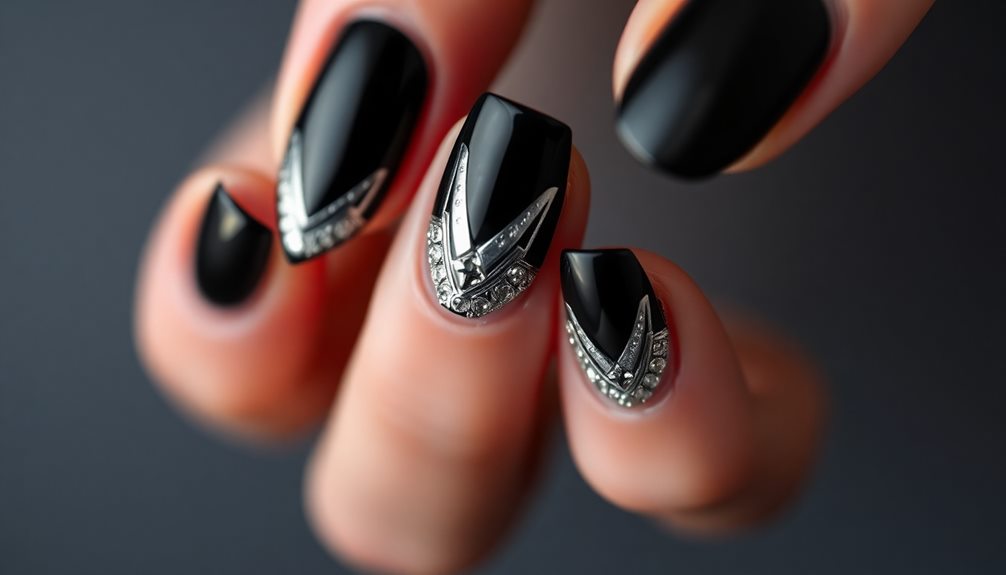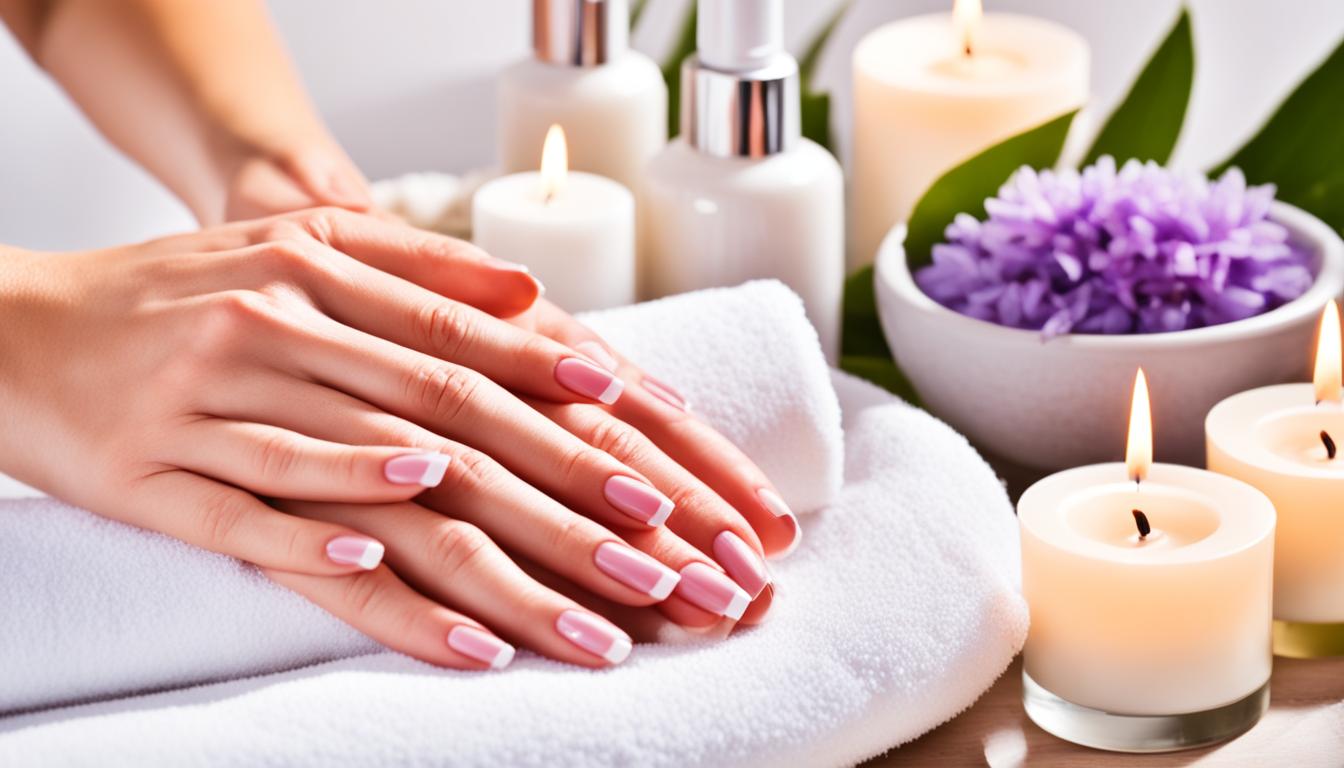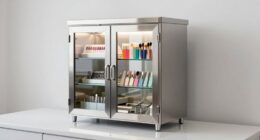Understanding when to toss your makeup is essential for healthy skin. Generally, liquid foundation lasts about a year, while cream products and mascaras need replacing every 6 to 12 months. Eyeliners should be tossed after 3 to 6 months, while lipsticks can stay good for up to a year. Always check for signs of spoilage like color changes, strange smells, or clumping. Keeping a system to track opening dates can really help too. Regularly managing your makeup inventory not only reduces waste but guarantees your beauty routine is safe and effective. There's plenty more to discover on this topic!
Key Takeaways
- Liquid foundation lasts about 1 year, while cream products and mascaras should be discarded after 6 months to 1 year.
- Eyeliners and lipsticks typically expire within 3 to 12 months; check for changes in texture or smell.
- Powder products like blush and eyeshadow can last 12 to 18 months if stored properly and checked regularly.
- Implement a labeling system to track opening dates and set reminders for product expiration.
- Regularly assess makeup for visual indicators of spoilage, such as clumping, separation, or packaging damage.
Makeup Expiration Guidelines
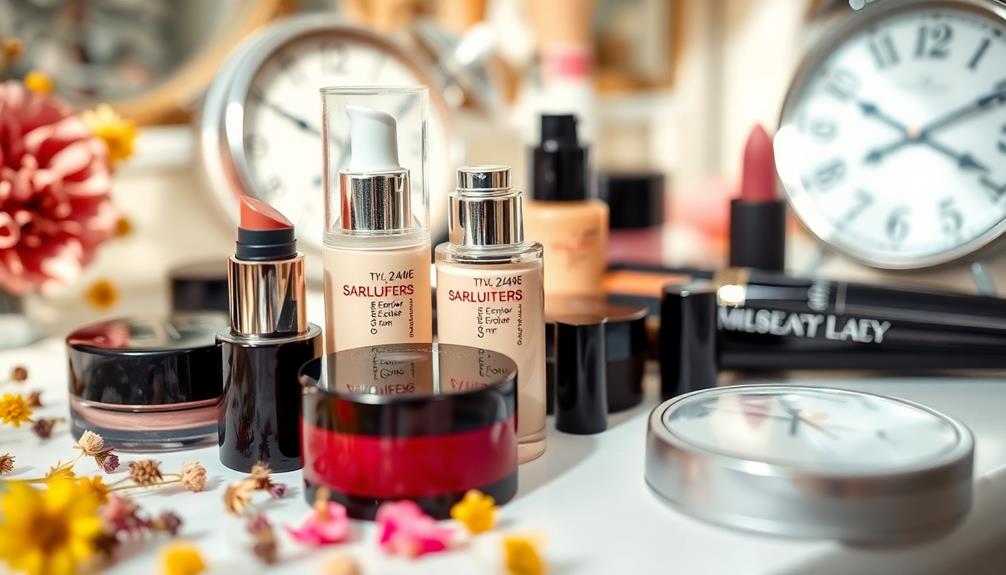
Makeup products aren't meant to last forever, and knowing their expiration guidelines is vital for your skin's health. Most makeup has specific makeup expiration dates that you should pay attention to. For instance, liquid foundation typically lasts about one year, while cream products and mascaras have a shorter lifespan of just 6 months to a year.
Eyeliners can last 3 to 6 months, and lipsticks usually stick around for 8 months to a year. Additionally, using products with active ingredients, such as glycolic acid in skincare, can enhance your routine, but it's important to verify they're still effective and safe.
To keep your skin safe, regularly disposing of old makeup is imperative. Using expired makeup increases the risk of skin infections due to bacteria growth. A good practice is to label your products with their opening dates, helping you track their average shelf life effectively.
Powder products like blush and eyeshadow can last 12 to 18 months, while lip glosses can be usable for up to 18 months. Make sure to throw away makeup once it's past its prime.
Importance of Cleaning Tools

When it comes to your beauty routine, maintaining clean tools is fundamental for achieving flawless results and protecting your skin. Makeup brushes and sponges can harbor harmful bacteria that may lead to irritations and breakouts. To guarantee skin health, you should clean non-disposable applicators every 7-10 days. This regular maintenance minimizes the risk of bacterial buildup and enhances your makeup application.
Additionally, just as it's significant to monitor your dog's diet to avoid harmful substances, such as grapes which can be toxic, keeping your beauty tools clean is essential for your skin's health.
Makeup sponges also require special attention; they should be replaced at least once a week to prevent the accumulation of germs and maintain peak hygiene. By regularly cleaning your brushes and sponges, you help prevent the transfer of bacteria that could cause infections on your skin.
Not only does proper maintenance of beauty tools improve hygiene, but it also prolongs the life of your tools, guaranteeing they perform well over time. Clean tools mean better makeup application, allowing you to achieve the looks you desire without the worry of skin issues.
Prioritize cleaning your makeup tools as an integral part of your beauty routine, and you'll notice the positive impact on both your application techniques and your skin's overall health.
Risks of Sharing Makeup
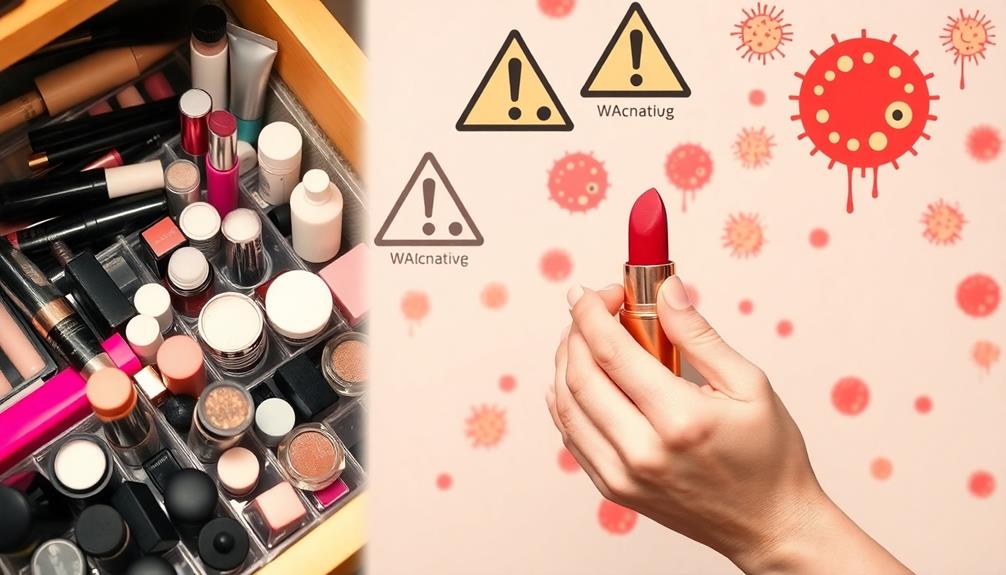
Sharing makeup might seem harmless, but it poses significant risks to your health. When you share lip products like lipsticks and glosses, you can easily transmit colds and flu viruses, increasing your chances of getting sick.
Using makeup that's past its expiration date can also lead to skin irritation or infections, as these products may harbor harmful bacteria over time. Even more concerning is the herpes simplex virus, which can be spread through shared lip products. You mightn't even show symptoms, yet you could still pass on cold sores to others.
Eye makeup, such as mascara and eyeliner, is particularly risky. These products can harbor harmful bacteria and pathogens that lead to eye infections. A study revealed that 90% of shared beauty products contain bacteria, emphasizing the importance of personal hygiene and individual use.
When you share these cosmetic products, you not only put your health at risk but also compromise the integrity and effectiveness of the makeup. Choosing to prioritize your health can be as important as selecting quality products, like best hearing aids with Bluetooth.
To protect yourself and others, it's best to avoid sharing makeup altogether. Invest in your own products and be mindful of their expiration dates.
Prioritizing your health and personal hygiene can help you enjoy your beauty routine without the hidden dangers of sharing.
Signs of Expired Makeup
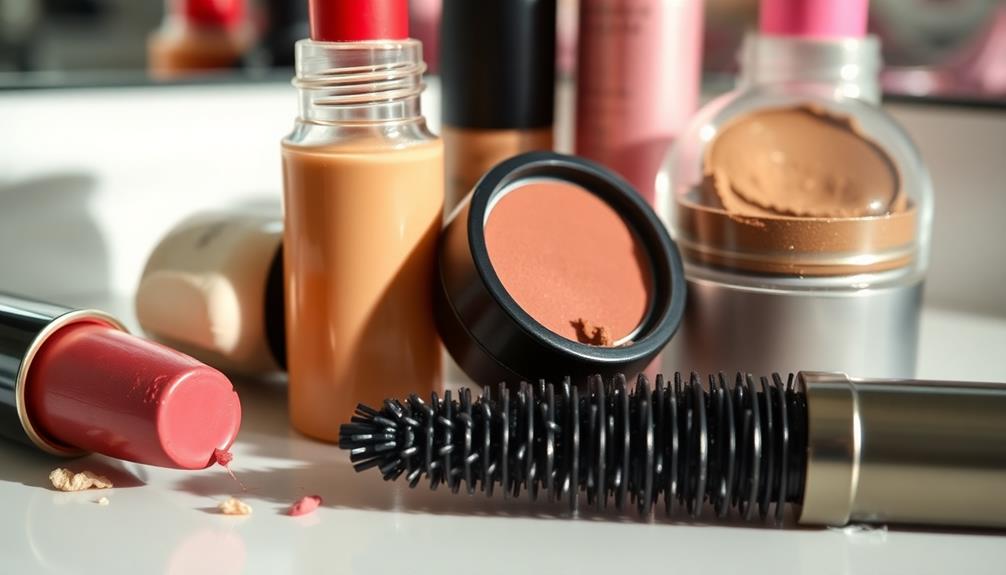
You should keep an eye out for visual indicators that your makeup might be expired, like changes in color or texture.
It's also important to take into account how the ingredients in cosmetics can affect your skin, just as the connection between oral health and overall health suggests.
If you notice a strange smell or clumping, it's time to rethink using that product.
Regularly checking for these signs can help you avoid skin irritation and guarantee your makeup remains safe.
Visual Indicators of Expiration
Makeup's visual indicators of expiration are essential for maintaining both safety and effectiveness. Regular inspections of your products can help you catch potential issues before they affect your skin. Here are some key visual indicators to watch for:
| Indicator | What to Look For | Action to Take |
|---|---|---|
| Color Change | Noticeable shifts in color | Discard if colors are off |
| Clumping or Crumbling | Cream products thickening; powder products crusty | Toss expired products |
| Separation | Layers forming in liquid products | Not safe to use |
| Packaging Damage | Broken seals or containers | Indicates contamination |
If you notice an unpleasant odor coming from your makeup, it's often a sign that it has expired and is no longer safe to use. Pay special attention to cream products, as they can thicken or develop unusual smells when they go bad. By being proactive and vigilant with your makeup routine, you can guarantee that your beauty products remain effective and safe for your skin.
Sensory Changes to Monitor
Visual indicators aren't the only signs that makeup may have expired. You should also pay attention to sensory changes that can affect your skin and overall health. One key indicator is unpleasant odors. If your old makeup smells off, it's often a signal that the ingredients have broken down, creating potential breeding grounds for bacterial growth.
Additionally, just as turmeric's potent relief for osteoarthritis pain highlights the importance of ingredient quality and stability, makeup products can also degrade over time, impacting their safety and effectiveness.
Texture changes are another red flag. If your mascara starts clumping or cream products begin to crease, it's time to reconsider using them. Similarly, color changes—like darkening or fading—can indicate that your makeup has expired and may not perform as intended.
Watch for visible signs of contamination, such as mold or unusual particles. These are definitive indicators that the product is no longer safe and poses serious health risks. If you notice separation in liquid foundations or concealers, that's a clear sign the product has degraded.
Always trust your senses; if something feels, smells, or looks off, it's best to toss out those expired products and protect your skin from potential harm.
Best Practices for Use
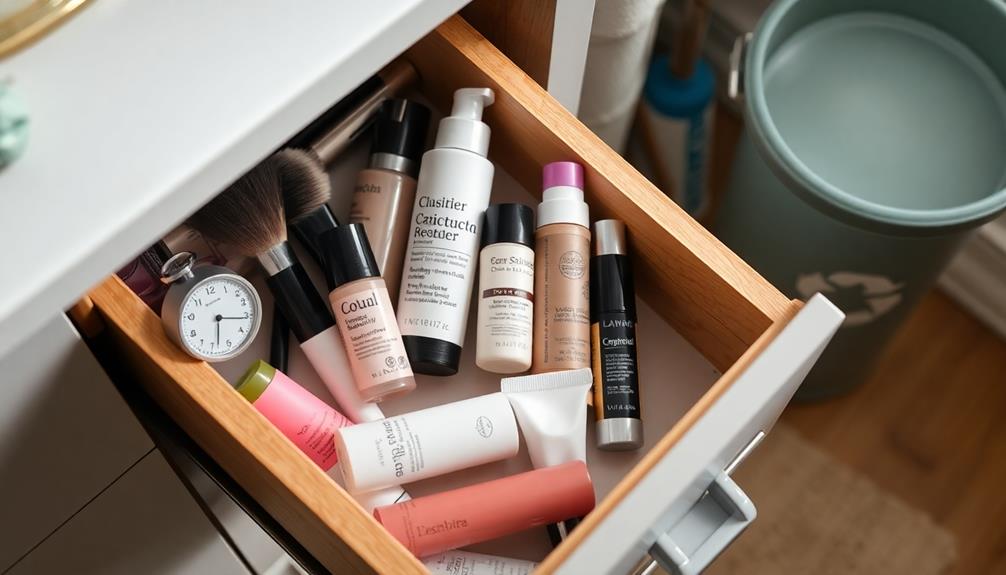
To get the most out of your beauty products, clean your tools regularly to prevent bacteria from mixing in with your makeup.
Using products like best shampoos for highlighted hair can also help maintain healthy skin by ensuring your hair is in top condition.
Keeping track of expiration dates helps you maintain healthy skin and achieve the best results.
Clean Tools Regularly
Regularly cleaning your beauty tools is essential for maintaining healthy skin and achieving flawless makeup application. To prevent bacteria buildup, make sure to clean non-disposable makeup applicators, like brushes and sponges, every 7-10 days.
Proper hygiene practices, much like great places for puppy socialization, can enhance your overall experience and outcomes. This routine will help you avoid skin issues caused by harmful germs. When cleaning your brushes, use gentle soap and warm water, ensuring they're thoroughly rinsed and dried to maintain their integrity.
Don't forget to regularly replace makeup sponges at least once a week. This minimizes the risk of transferring germs to your skin. After cleaning, store your brushes upright in a cool, dry place to prevent moisture accumulation, which can lead to bacteria growth.
It's also important to avoid sharing beauty tools and applicators with others. This reduces the risk of transferring harmful bacteria and viruses.
Remember, clean hands are your first line of defense, so always wash your hands before applying makeup. By committing to clean tools regularly, you'll not only enhance your makeup application but also protect your skin from potential irritation and breakouts.
Prioritizing cleanliness in your beauty routine pays off in the long run!
Track Expiration Dates
Keeping track of expiration dates for your beauty products is essential for guaranteeing both safety and effectiveness. Start by implementing a labeling system to mark the opening dates of each product, allowing you to easily track expiration dates and their life span.
Familiarize yourself with the Period After Opening (PAO) symbols on your products; these indicate how long they're safe to use after opening, like "6M" for six months. Additionally, maintaining a clean environment can enhance product longevity, just as using air purifiers can improve air quality for your beauty space by reducing allergens and pollutants effective reduction of allergens.
Set reminders or calendar alerts for product expiration dates based on average lifespans—replace mascara every 4-6 months and foundation annually. Conduct bi-annual audits of your makeup collection to prioritize using older products first. During these audits, discard any items that have expired or show signs of spoilage.
Regularly assess your products for any changes in smell, texture, or appearance, as these can indicate that a product has gone bad. If you notice any discrepancies, don't hesitate to discard them.
Proper Storage Techniques
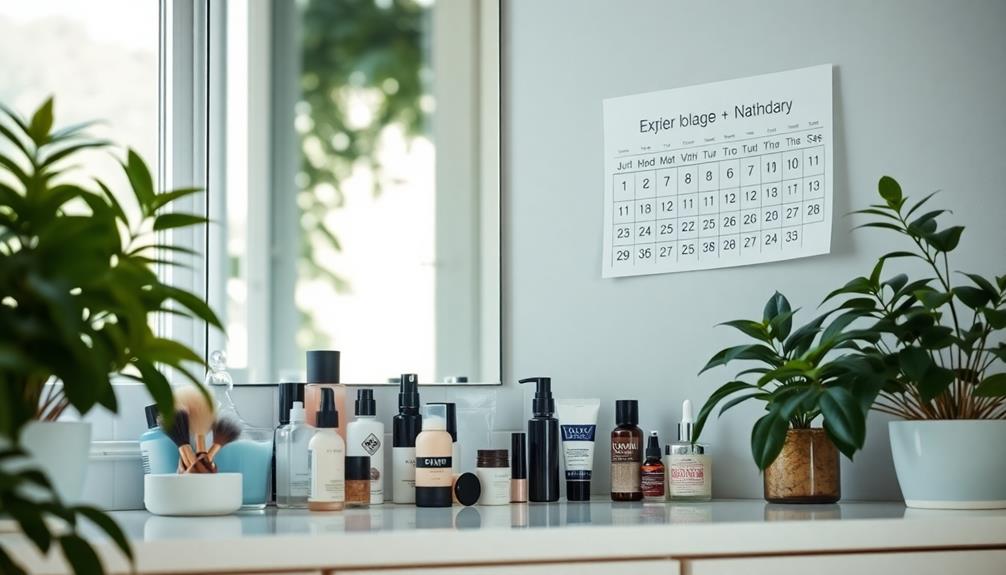
Proper storage techniques can greatly extend the life of your beauty products and maintain their effectiveness. To guarantee you're getting the most out of your makeup, follow these tips:
| Storage Tips | Benefits | Important Notes |
|---|---|---|
| Store in a cool, dark place | Prolongs shelf life | Avoid bathrooms |
| Use original boxes or opaque containers | Prevents degradation | Protects from sunlight |
| Refrigerate lipsticks in warm climates | Maintains texture | Prevents melting |
High humidity can accelerate expiration, so it's vital to avoid storing makeup in bathrooms where bacterial growth thrives. Instead, keep your products in a dry environment, away from direct sunlight and heat. Using original boxes or opaque containers helps minimize oxidation and keeps formulations intact.
Regularly check and organize your makeup collection to identify items nearing their expiration dates. This way, you can guarantee proper storage and maintain the integrity of your beauty products. By following these guidelines, you'll not only keep your makeup effective but also enjoy a clutter-free beauty space.
Managing Makeup Inventory
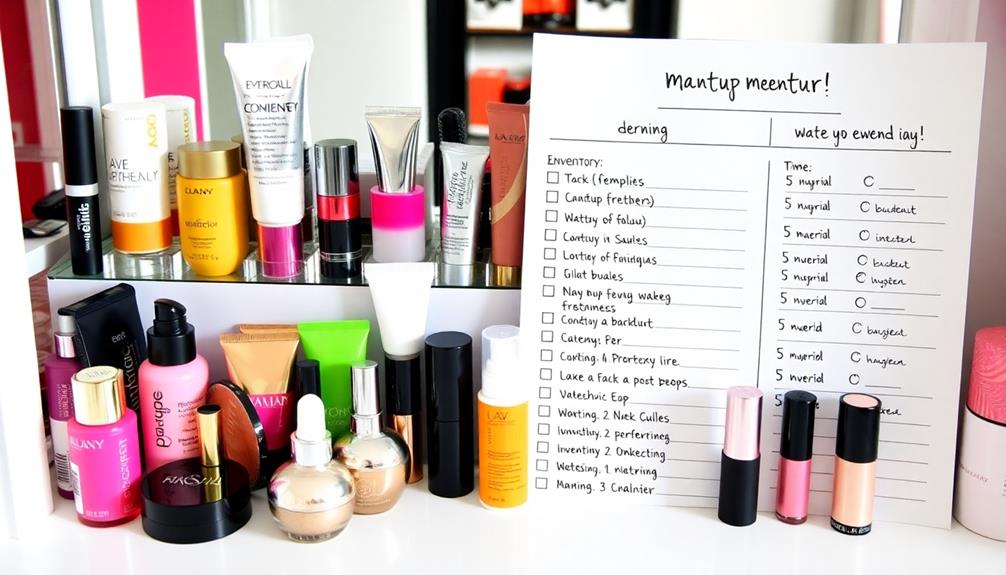
Managing your makeup inventory effectively starts with implementing a system that keeps track of your products' purchase dates and expiration timelines. Use labels to mark when you bought each item, and set reminders to alert you when it's time to toss outdated products.
Conduct bi-annual makeup audits to assess the condition of your inventory, similar to how one would schedule regular window cleaning services for maintaining a clean environment. Prioritize using older items to minimize waste and guarantee better hygiene.
Regularly review and organize your collection, keeping it clean and free from expired products. This not only promotes hygiene but also makes your shelf easier to navigate.
Consider incorporating travel-size or sample products to help manage your inventory and prevent over-purchasing.
Utilizing a checklist with specific product lifespans can be invaluable. For instance, remember that mascara typically lasts 3-6 months, while powder products can be good for 1-2 years.
Frequently Asked Questions
How Do You Know When to Throw Away Makeup?
You'll know it's time to toss your makeup when you notice changes in texture, smell, or color. Regularly check for separation or dryness, and don't hesitate to label products with opening dates for easy tracking.
How Do I Know When My Makeup Expired?
Did you know liquid makeup usually lasts only 6-12 months? To tell if your makeup's expired, check for odd colors, strange smells, or changes in texture. If you notice these, it's time to toss it!
Can I Use 10 Year Old Eyeshadow?
You shouldn't use 10-year-old eyeshadow. Over time, it can change in texture and color, increasing the risk of irritation and infection. Regularly check for signs of expiration to keep your eyes safe and healthy.
How Important Is It to Throw Away Expired Makeup?
It's essential to toss expired makeup. Using old products can lead to skin irritations and infections. Regularly checking expiration dates guarantees you're applying safe, effective products and maintaining your skin's health and hygiene.
Conclusion
You might think tossing your makeup feels wasteful, but using expired products can lead to skin irritation or infections. By understanding expiration guidelines and recognizing the signs of aging makeup, you're protecting your skin and ensuring your beauty routine remains effective. Regularly cleaning your tools and managing your inventory not only keeps your collection fresh but also enhances your overall experience. Embrace these practices, and you'll enjoy a safer, more vibrant makeup routine without the guilt of waste.

